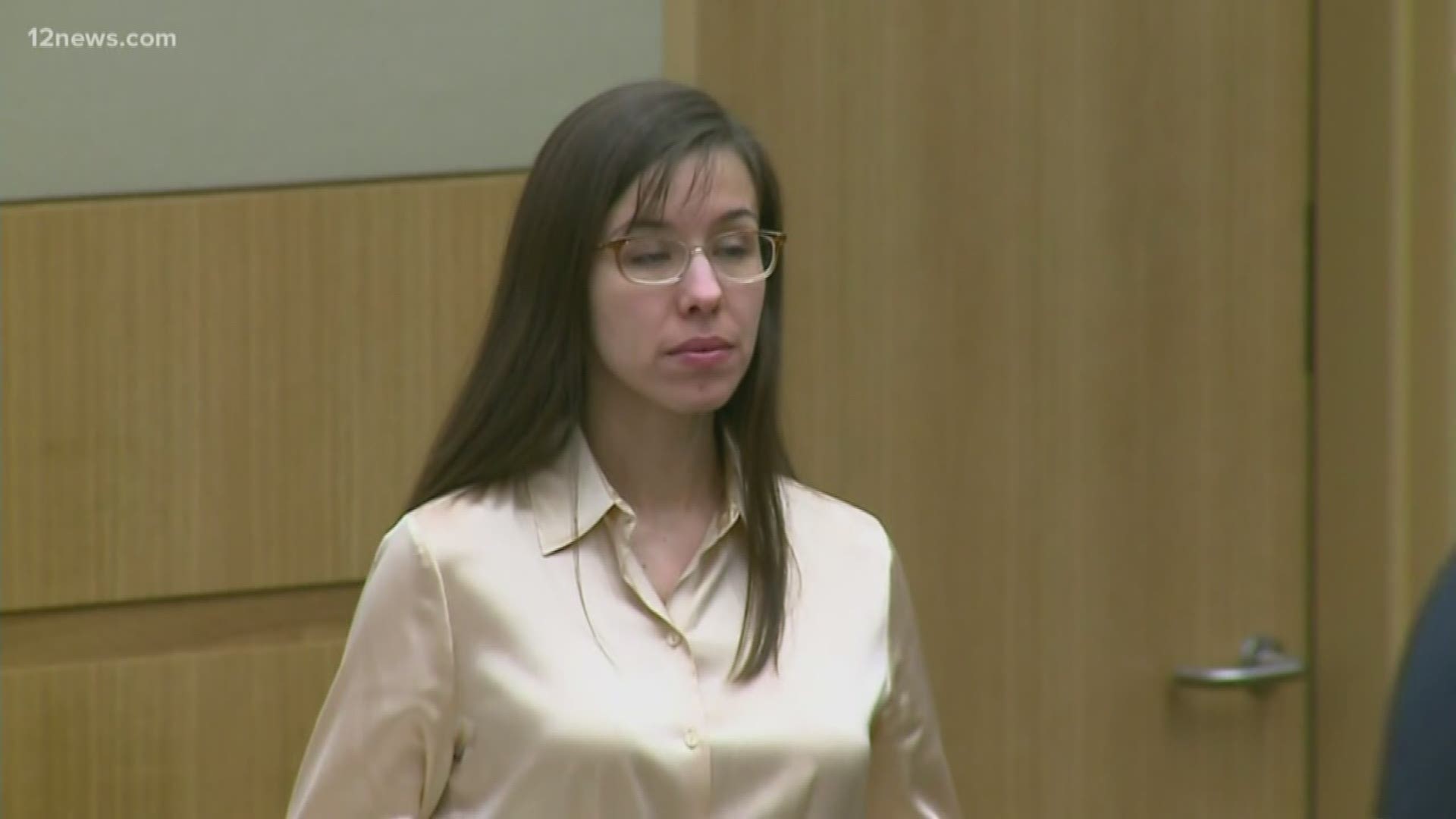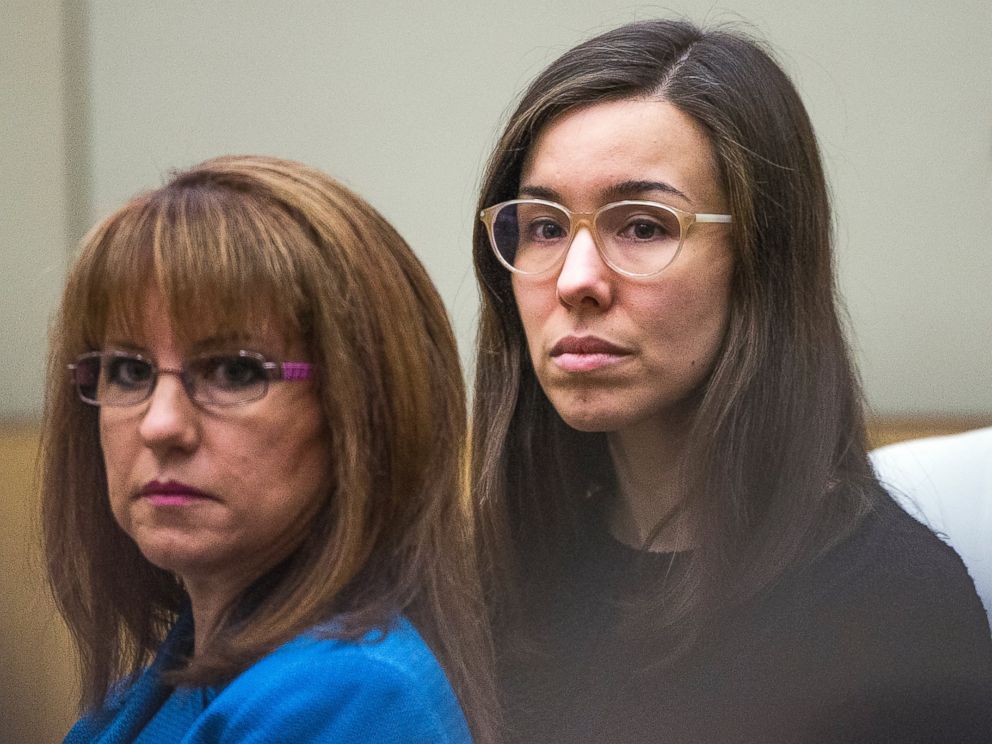Jodi Arias is a name that has been etched into the annals of true crime history. Her case, which captivated millions, delves into themes of betrayal, deception, and justice. This article will explore the intricate details surrounding her life, the crime, and its aftermath, providing a comprehensive overview for readers eager to understand the complexities of this high-profile case.
Jodi Arias' story is not just about a single crime but a series of events that unfolded over years, culminating in one of the most publicized trials in modern history. The case remains a subject of fascination for true crime enthusiasts worldwide, sparking debates about her motivations, the justice system, and the role of media in shaping public perception.
Throughout this article, we will delve into the various aspects of Jodi Arias' life, the crime itself, the trial, and its lasting impact. By examining the facts, evidence, and expert opinions, we aim to provide a balanced and informed perspective on this infamous case, helping readers form their own conclusions.
Read also:Cassandra Davis Onlyfans Leaked
Table of Contents
- Biography of Jodi Arias
- Details of the Crime
- Overview of the Trial
- Impact of Media Coverage
- Psychological Analysis
- Legal Debates and Controversies
- Public Opinion and Reaction
- Current Status and Updates
- Lessons Learned from the Case
- Conclusion
Biography of Jodi Arias
Early Life and Background
Jodi Arias was born on July 27, 1980, in Salinas, California. Raised in a middle-class family, she grew up in a structured environment with her parents and siblings. Her father, Bill Arias, was a successful businessman, while her mother, Debra Young, worked as a homemaker. Jodi's early life seemed unremarkable, marked by typical childhood experiences and academic pursuits.
However, her teenage years revealed a more complex personality. Jodi was described as intelligent but also rebellious, often clashing with her parents over issues of independence and discipline. This period of her life laid the groundwork for the tumultuous relationships that would later define her adulthood.
Biodata and Personal Details
| Full Name | Jodi Arias |
|---|---|
| Date of Birth | July 27, 1980 |
| Place of Birth | Salinas, California |
| Occupation | Graphic Designer |
| Education | San Jose State University |
Details of the Crime
The case that brought Jodi Arias into the national spotlight began on June 4, 2008, when her ex-boyfriend, Travis Alexander, was found dead in his Mesa, Arizona home. The gruesome nature of the crime, involving nearly 30 stab wounds and a gunshot to the head, shocked the nation. The investigation quickly pointed to Jodi Arias as the prime suspect, leading to her arrest on February 5, 2009.
According to the prosecution, the murder was a result of a violent argument that spiraled out of control. Jodi, however, claimed self-defense, stating that Travis had attacked her first. The conflicting narratives set the stage for a trial that would captivate millions.
Overview of the Trial
Key Evidence Presented
The trial, which began in January 2013, was marked by dramatic testimonies, graphic photos, and emotional outbursts. Key pieces of evidence included:
- Photographs taken by Jodi Arias herself, showing her and Travis in compromising positions.
- Phone records indicating frequent communication between the two.
- Forensic evidence linking Jodi to the crime scene.
These elements played a crucial role in shaping the jury's perception of the case, ultimately leading to a verdict of guilty.
Read also:Cherry Crush Leak
Legal Team and Strategies
Jodi Arias was represented by a team of skilled defense attorneys who employed various strategies to cast doubt on the prosecution's case. They highlighted inconsistencies in the evidence, questioned witness credibility, and emphasized Jodi's claim of self-defense. Despite their efforts, the jury found her guilty of first-degree murder on May 8, 2013.
Impact of Media Coverage
The Jodi Arias trial became a media sensation, with major networks providing live coverage and analysis. The intense scrutiny from the press brought both benefits and challenges to the case. On one hand, it raised public awareness and ensured transparency in the judicial process. On the other hand, it also fueled speculation and misinformation, complicating the pursuit of justice.
Experts argue that media coverage can significantly influence public opinion, sometimes overshadowing the facts presented in court. In Jodi Arias' case, this dynamic played a pivotal role in shaping the narrative both inside and outside the courtroom.
Psychological Analysis
Understanding Motivations
Psychologists and criminologists have long debated the motivations behind Jodi Arias' actions. Some suggest that her behavior was driven by a combination of jealousy, obsession, and a desire for control. Others point to deeper psychological issues, such as narcissism or borderline personality disorder, which may have influenced her decisions.
Regardless of the underlying reasons, understanding the psychological factors at play is essential for comprehending the complexity of the case and its implications for society.
Behavioral Patterns
Jodi's behavioral patterns, both before and after the crime, provide valuable insights into her character. Her interactions with friends, family, and law enforcement reveal a pattern of manipulation and deceit, traits often associated with individuals involved in high-profile crimes.
Legal Debates and Controversies
The Jodi Arias case sparked numerous legal debates, particularly regarding the death penalty and the role of the jury in determining sentencing. Critics argued that the prosecution's push for the death penalty was excessive, given the circumstances of the crime. Meanwhile, supporters maintained that justice demanded the harshest punishment.
These discussions highlight the ongoing challenges faced by the legal system in balancing fairness, compassion, and accountability in cases involving extreme violence.
Public Opinion and Reaction
Public reaction to the Jodi Arias case has been divided, with opinions ranging from outrage to sympathy. Social media platforms have been instrumental in amplifying these voices, allowing individuals to share their thoughts and engage in meaningful discussions about the case.
While some view Jodi as a cold-blooded killer, others see her as a victim of circumstance, caught in a web of toxic relationships and societal pressures. This diversity of perspectives underscores the complexity of human nature and the challenges of assigning moral judgment.
Current Status and Updates
As of 2023, Jodi Arias remains incarcerated, serving a life sentence without the possibility of parole. Her appeals have been largely unsuccessful, though her legal team continues to pursue avenues for potential relief. Meanwhile, the case remains a subject of interest for true crime enthusiasts and legal scholars alike.
Updates on her condition and legal proceedings are regularly reported in the media, ensuring that her story remains relevant in contemporary discourse.
Lessons Learned from the Case
The Jodi Arias case offers valuable lessons about the nature of crime, justice, and human behavior. It highlights the importance of thorough investigation, fair trial procedures, and empathy in understanding the motivations behind criminal acts. Additionally, it serves as a reminder of the power of media in shaping public perception and influencing legal outcomes.
By examining these lessons, society can work towards a more just and compassionate approach to addressing crime and its consequences.
Conclusion
In conclusion, the Jodi Arias case is a testament to the complexities of human behavior and the challenges of administering justice. From her early life to the crime itself and its aftermath, her story provides a compelling narrative that continues to captivate audiences worldwide.
We invite readers to share their thoughts and engage in discussions about this case. For those interested in learning more, we recommend exploring additional resources and articles on our site. Together, we can deepen our understanding of this fascinating and often controversial topic.



